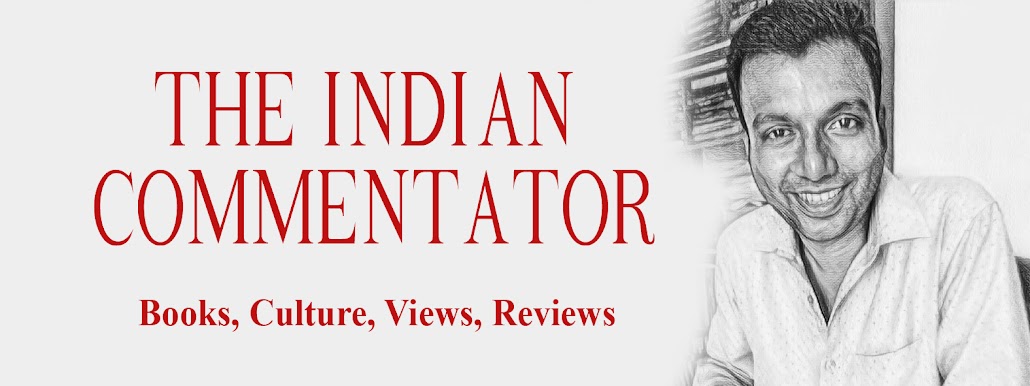Reading Perumal Murugan is equivalent to stepping into a flowing river. My first encounter with Murugan is The Goat Thief. It’s a collection of ten short stories translated into English by N. Kalyan Raman. A south Indian by birth, at first I looked at Murugan’s creative universe with some scepticism. I doubted the possibilities of engaging with the noetic realm of the characters to the extent Perumal Murugan does in this collection. The natural and the supernatural could be seen merging in all the stories of the collection. The real meets the surreal also. Every reading and rereading of these stories render them with a meaning unexplored in the earlier attempt. This makes him a versatile writer.
I heard of Perumal Murugan for the first time through a controversy a year ago. The author had written his own obituary following the subversion of his Tamil language novel, translated into English as One Part Woman. The Goat Thief is his first collection of short stories in the English language.
Reading his short stories in The Goat Thief, starting with “The Well” curiosity had the better of me. I was engulfed by the intent to decode signs through which Perumal Murugan may have responded to the time of suppression. However, far from being a propagandist, this South Indian author establishes himself as a major literary artist India has seen.
The translator has approached the text with honesty that springs forth through the lucid yet deep prose. Tamil is supremely a lyrical language. The idiosyncrasies of the source language are not easily transferable into the target language. As Perumal Murugan himself attests, his prose style is “dialect-inflicted”. The stories of The Goat Thief are extremely readable. The tools and strategies successfully employed by the translator are evident.
The publisher also deserves a special mention. Juggernaut Books is revolutionizing Indian publishing scene through their interventions in the digital space through the Juggernaut reading app as well as print publishing in the traditional format. The book I review here is a hardback volume with a cover that speaks through the spaces between the reader and the author. The cover establishes an abstract connection with the text and the landscape that becomes the background of the story in a simplistic way. Juggernaut books also recently published the English translation of the Malayalam novel Enmakaje by Ambikasuthan Mangad translated into English by J Devika as Swarga. Through such attempts where a writer from the peripheral space of national literature, marked as ‘regional language writers’, is foregrounded, translated into a language that the whole of the country understands.
This process is not merely an act of locating artistic equivalence. A different kind of equivalence is also sought through this attempt. The regional woes seek a way to penetrate the psyche and imagination of the nation. This has the impact of healing the wounds of the nation and the pain of its regional subjects. Sharing the concerns and receiving the acknowledgement are part of this healing process. The Goat Thief is also a book that tries to find out how to heal those spirits that are in disharmony with the rules of the society.
Perumal Murugan locates his stories in the most usual and habitual fields of everyday life. He transforms the 'every day' into the extraordinary through diligent prose as well as audacious creative interference. The Preface to The Goat Thief contains the meaning that Perumal Murugan gives to short fiction. He equates the art of writing short stories with the art of drawing kolams in Tamil culture.
Every character in this book has uniquely identifiable rhizomatic elements deeply rooted in the culture of the author. For instance, the well from the story by the same name pictures a well that traps an individual. Perumal Murugan beautifully mingles a nightmarish agony with a seemingly everyday activity. However, jumping into a well to take bath is not what one may see in Kerala, for example. The wells here are mostly too deep to jump in. even if the depth is not a challenge, people refrain from such activities. Needless to say, it is a uniquely Tamil event.
Like stepping into a flowing river, each reading renders these stories with multiple significations. The ripple of the first story is seen through all the others in the collection. The natural and the usual appears in the universe of Perumal Murugan as the supernatural and the unusual. In the short story titled “Musical Chairs” for example, a chair forms the central concern of the story. Through introducing the almost supernatural existence of the chair as someone with a personality, the writer unveils a poignant tale of a married couple. The major themes of the stories serve the purpose of elaborating the lives of those who are in conflict with the mainstream society.
I can certainly say that this is one of the best short story collections I have read. The Goat Thief may be the best short story collection of the year not just in India. This is the work of a genius.
Buy:
















